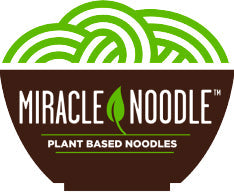Vegan Meat Vs Regular Meat: Which is Healthier?

Trying to cut down on meat intake? Plant-based “meats” are soaring in popularity. But how do vegan meats compare to animal protein when it comes to nutrient density and absorption?
The Popularity of Plant-Based Meat
According to the Good Food Institute (GFI), more and more people are wanting to have their meat and eat it too, provided that it’s plant-based.
Sales of vegan imitations of beef, chicken, pork and seafood rose by nearly half a billion dollars from 2019 to 2020, when in that year, sales of plant-based meats reached nearly $1.5 billion.
In comparison to regular meat, plant-based mock meats are still a drop in the bucket: under 3% of total dollar sales for all retail sales of packaged meat. Today, says GFI, the rapid growth of vegan meat—a 64% growth from 2018 to 2020—mirrors the trajectory of the plant-based milk market when it was in its infancy. Currently, plant-based milk accounts for over 15% of total milk retail sales.
Industry experts predict a similar growth opportunity for vegan meat. If this category rides the same roller coaster of growth that plant-based milk has achieved, vegan meat will soon be a $15 billion industry!
Obviously, consumers are becoming more conscious about their choices, and they perceive plant-based meat to be inherently healthier than regular meat. Not only for their own health but that of the environment as well.
So are consumers making the right choice about consuming more plant-based meat to support health?
Vegan Meat vs Regular Meat
Let’s pit the Impossible Burger vs a Big Mac.
In one corner we have a vegan, bloody burger made with a hitherto never-before-consumed type of soy; potato; seed oil and coconut oil. In the other corner we havem, and if you’re a child of the 70s or older, you might remember this song, which spells out all the ingredients: “Two All Beef Patties, Special Sauce, Lettuce, Cheese, Pickles, Onions on a Sesame Seed Bun.”
Clearly, the vegan version of a fast food burger wins the health contest right?
Don’t be so quick to judge.
In fact, according to SciTechDaily.com, the Impossible Burger contains the same amount of calories and saturated fat as its Mickey-D’s counterpart. (Actually, the Impossible Burger was compared to a Quarter Pounder, but the urge to recite the 1970s McDonald’s commercial was irresistible.)
What’s more and this might come as a big surprise, the Impossible Burger has six times the sodium as a Quarter Pounder.
Besides the calorie count, saturated fat and sodium, clearly, vegan meat must be better for your health than regular fast-food burgers, right?
Again, the decision is not unanimous.
A study from a year ago in Nutrients suggests “the nutritional benefit of plant-based foods is minimal.”
According to a summary of the research in SciTechDaily, “Diets that substituted animal products with the plant-based alternative were below the daily recommendations for vitamin B12, calcium, potassium, zinc and magnesium, and higher in sodium, sugar, and saturated fat.”
And not only that, research shows that the proteins in plant-based meat does not get absorbed by the body as efficiently as real meat.
Not All Protein Created Equal
Vegan meat food companies claim that the protein content in their offerings matches that of regular meat options. But there’s more to the story than grams of protein when it comes to digestion and overall health.
According to SciTechDaily, Research from Duke University’s Molecular Physiology Institute compared 190 molecules in plant-based meat alternatives with grass-fed ground beef. What they discovered was that 90 percent of the molecular compounds were different in structure. Vegan meat proteins were found to lack certain amino acids. This can adversely affect overall health and potentially brain- and muscle function, the researchers concluded.
What’s The Best Meat For Health?
This isn’t to suggest of course that you should feel free reign to feast on Big Mac’s and Quarter Pounders, rubbing it in the face of vegans. Actually, 90% of people who eat Impossible Burgers still eat regular meat.
If you’re going to eat meat, make sure it’s the healthiest, highest-quality, most-environmentally friendly on the market.
When it comes to beef, that means it should be raised on a farm using regenerative farming practices, which is even better than sustainable farming because it captures excess carbon and helps to reinvigorate the health of the soil.
Chicken should be purchased from your local farmer’s market from farmers who truly let their poultry be free-range as opposed to the deceptive marketing labels of “cage-free” in supermarkets. The same thing goes for eggs, which should be pasture-raised.
But at the end of the day, your plate should be filled with plenty of plant-based food. Just make sure it’s real food, not lab-grown imitation Frankenfood.
What do you think of plant-based meat? Leave a comment below.
Judd Handler is a health writer based in Vista, CA, and a graduate of Functional Diagnostic Nutrition.
